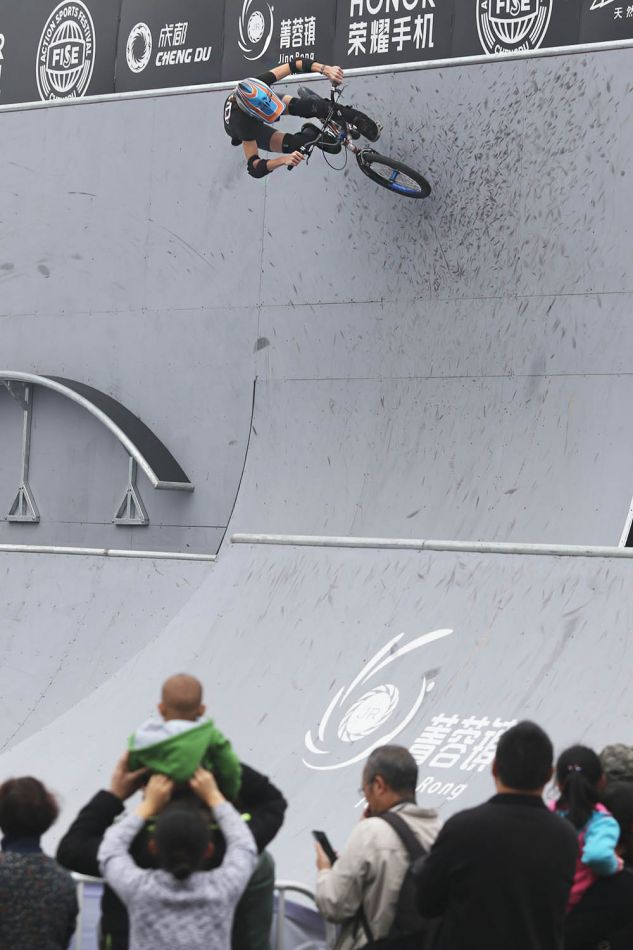The UCI adapts its rules on the participation of transgender athletes in international competitions
 At an extraordinary meeting held on 5 July, the Management Committee of the Union Cycliste Internationale (UCI) decided to adapt the current UCI rules on the right of female transgender athletes to take part in competitions on the UCI International Calendar. The meeting of the UCI Management Committee was held following a seminar on the conditions for the participation of transgender athletes in women's cycling events, organised by the UCI on 21 June, at which the various stakeholders - transgender and cisgender athletes, experts from the scientific, legal and human rights fields, and sporting institutions - were able to present their respective positions.
At an extraordinary meeting held on 5 July, the Management Committee of the Union Cycliste Internationale (UCI) decided to adapt the current UCI rules on the right of female transgender athletes to take part in competitions on the UCI International Calendar. The meeting of the UCI Management Committee was held following a seminar on the conditions for the participation of transgender athletes in women's cycling events, organised by the UCI on 21 June, at which the various stakeholders - transgender and cisgender athletes, experts from the scientific, legal and human rights fields, and sporting institutions - were able to present their respective positions.
From now on, female transgender athletes who have transitioned after (male) puberty will be prohibited from participating in women's events on the UCI International Calendar – in all categories - in the various disciplines.
For international Masters events - races on the UCI Cycling for All International Calendar and UCI events (UCI Gran Fondo World Series, UCI Gran Fondo World Championships, UCI Gravel World Series, UCI Gravel World Championships and UCI Masters World Championships) -, the Men’s category will be renamed Men/Open, and any athlete who does not meet the conditions for participation in women's events will be admitted without restriction.
The UCI Management Committee has taken note of the state of scientific knowledge, which does not
 In line with the announcement it made on 4 November 2019, the Union Cycliste Internationale (UCI) approved its new regulations on the eligibility of transgender athletes to compete in events on the UCI International Calendar. The decision was made at the meeting of its Management Committee in Dübendorf (Switzerland) on 30 January. The new regulations, which will come into effect on 1 March 2020, are designed to encourage transgender athletes to compete in the category corresponding to their new gender, while guaranteeing a level playing field for all athletes in the competitions in question.
In line with the announcement it made on 4 November 2019, the Union Cycliste Internationale (UCI) approved its new regulations on the eligibility of transgender athletes to compete in events on the UCI International Calendar. The decision was made at the meeting of its Management Committee in Dübendorf (Switzerland) on 30 January. The new regulations, which will come into effect on 1 March 2020, are designed to encourage transgender athletes to compete in the category corresponding to their new gender, while guaranteeing a level playing field for all athletes in the competitions in question.
What are the eligibility criteria?
Up until then, the eligibility criteria for competing in the corresponding gender-identity category were those agreed on at a consensus meeting organised by the International Olympic Committee (IOC) in 2015. The provision of new scientific knowledge led to those eligibility criteria being reviewed – in particular for male-to-female athletes – at a working meeting held in Lausanne on 19 October 2019, and which was attended by the UCI, other International Federations, experts and representatives of transgender and cisgender athletes. As part of the new consensus, it is agreed that if a Federation decides to use testosterone as an indicator, the transgender athlete will only be eligible to compete in the Women category if their serum testosterone level is below 5 nmol/L.




 After doing a BMX 'zine for ten years (1987 - 1996) FATBMX made it on the internet. The year was 1998. Here to stay.
After doing a BMX 'zine for ten years (1987 - 1996) FATBMX made it on the internet. The year was 1998. Here to stay.